Brits continue to embrace plant-based milk
22 Jul 2019From almond to oat and coconut to pea, plant-based milk alternatives are causing something of a stir, as latest research from Mintel reveals Brits are branching out in their milk tastes.
Almost a quarter (23%) of Brits used plant-based milk alternatives in the three months to February 2019, up from just 19% in 2018.

Driving the plant-based revolution, some 26% of women enjoy plant-based milk alternatives and as many as a third (33%) of 16-24s opt for these varieties. Growth of milk alternatives is largely fuelled by more recent category entrants such as oat (volume sales of which grew 71% between 2017), coconut (up 16% between 2017-18) and almond variants (up 10% between 2017-18), all of which have grown in visibility as well as availability in 2018.
But while plant-based milk alternatives continue to grow in popularity, according to Mintel research, they accounted for just 4% of volume sales and 8% of value sales of white milk in 2018. Furthermore, their use in cooking and hot drinks remains limited. Only 25% of plant-based milk alternatives consumers use these products in cooking, compared to 42% for standard cow’s milk users. The difference is even wider with hot drinks, where just 42% of plant-based milk alternatives consumers use them in hot drinks, compared to 82% for standard cow’s milk users. Nevertheless, a fifth (21%) of Brits believe nut milks add more flavour to drinks than cow’s milk.
Highlighting that there are more opportunities for further growth in the plant-based milk alternatives trend, 65% of plant-based milk users would welcome advice on how to use plant-based milk/cream alternatives in cooking/baking – with 24% of non-users also interested in such advice.
Emma Clifford, Associate Director of UK Food and Drink, said: “Plant-based milk alternatives continue to make further inroads into the mainstream, with high levels of innovation activity such as the entrance of Innocent Drinks to the market in 2018. Growth in this segment forms part of a much wider plant-based movement, driven by concerns around health, ethics and the environment, as well as by consumers’ love of variety in their diets.”
“The shift towards the higher-priced plant-based alternatives will carry on, helping to add value to the market overall. Consumer interest in advice on how these alternatives suit different usage occasions signals marked potential to boost usage among current users and non-users alike.”
Traditionally a household staple, usage of standard cow’s milk is sliding among 16-24-year-olds, falling from 79% in 2018 to 73% in 2019. While cow’s milk still accounted for the vast majority of white milk sales in 2018 (96%), usage of this family favourite is increasingly skewed towards older consumers, peaking at 92% among over-45s.
This fall in usage among 16-24s comes as 37% of this age group say they have reduced how much standard cow’s milk they have used in the last 12 months for health reasons. Environmental concerns are also playing a role, with 16-24s most likely (36%) to agree that dairy farming has a negative impact on the environment. The significantly lower usage of cow’s milk among the younger generation is also in line with these consumers being most likely to report dairy avoidance in their household, at 26% of under-35s.
“With volume sales of cow’s milk already on a downward trend, the fact that more young consumers are turning away from these products does not bode well for this segment’s prospects in the long-term. Efforts from the industry to remind young consumers of the benefits of using cow’s milk, and dairy more widely, for example in terms of health, are needed,” said Cliff.
Mintel research highlights the importance of ethics and the environment for the milk and dairy industry as a third (33%) of milk, milk drinks and cream users are interested in products in a bottle/pot made wholly/partly of recycled plastics. Meanwhile, a quarter (27%) of users are interested in products with a guarantee of sustainable farming. Around one in seven (15%) users would be interested in products with an on-pack statement of how many days the animals spent outside.
“Media coverage of the ethical and environmental issues around animal farming have helped raise consumer awareness of these factors. Ethical interest is of significant importance to the dairy drinks, milk and cream sector, particularly as in this market differentiation is challenging. Interest in ethical products – including those that use recycled plastics, plastic waste reduction, sustainable farming, and support animal welfare – offers opportunities to engage with consumers, create compelling points of difference and encourage people to spend a bit more money,” said Cliff.
Finally, as many as 40% of standard white cow’s milk users would pay more than £1.20 for a four-pint bottle of milk, up from 35% in 2018. The price for a four-pint bottle of standard own-label milk stood at around £1.10 in April 2019, the same as in March 2018.
“This attitude aligns closely with our research which shows that 44% of people say small price rises in milk do not matter and reflect milk’s relatively small role in the overall grocery budgets,” said Cliff.
Related news
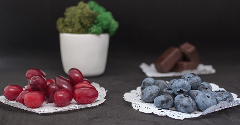
Misleading nutrition claims mask true sugar levels in baby food
5 Jan 2023
Some baby and toddler food and drink products, sweetened with fruit concentrate, contain up to four teaspoons of sugar per serving yet are marketed as having ‘no added sugar’, according to a survey by Action on Sugar.
Read more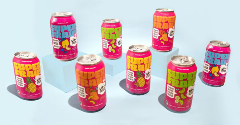
Superfrau upcycles liquid whey for energy drinks
22 Dec 2022
US company Superfrau turns surplus whey into sustainable, upcycled-certified dairy products for the recovery drinks market.
Read more
Functional food in Japan centres on health and proving claims
8 Dec 2022
The latest Japanese functional food and drink trends put health and product efficacy firmly on the production agenda for new releases.
Read more
Philippines to restrict trans fats in processed foods
5 Dec 2022
Use of artificial trans fats in pre-packed processed foods will be restricted in the Philippines as the country looks to eliminate its consumption from other sources too.
Read more
Food brands are getting creative to help customers save
23 Nov 2022
As consumers are hit by the cost-of-living crisis, retailers such as Tesco and Sainsbury’s in the UK and Target and Kroger in the US are rolling out various strategies to help people save money and reduce food waste.
Read more
China bans celebrity endorsement of health and formula foods
22 Nov 2022
China is to ban celebrity endorsement or advertising of certain products, completely banning high profile figures with “lapsed morals” as the country attempts to drive society towards “core socialist values”.
Read more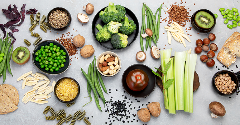
Quorn and Nature’s Fynd among founding members of the Fungi Protein Association
15 Nov 2022
Global fungi protein manufacturers have formed the Fungi Protein Association (FPA), a trade body that promotes fungi as a sustainable protein in public policy and conducts consumer research on the ingredient.
Read more
Ice cream innovation draws on health and wellness trend
19 Oct 2022
Manufacturers are formulating ice cream ranges with probiotics, protein, and plant-based ingredients to appeal to growing health and wellness demand.
Read more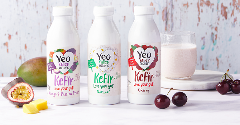
Editors’ choice: Our roundup of the most innovative global dairy products
6 Oct 2022
From omega-3 goat milk in the Netherlands to banana-flavoured cheese from China, the global dairy space is an exciting area full of new and innovative products which are constantly changing perceptions in the sector.
Read more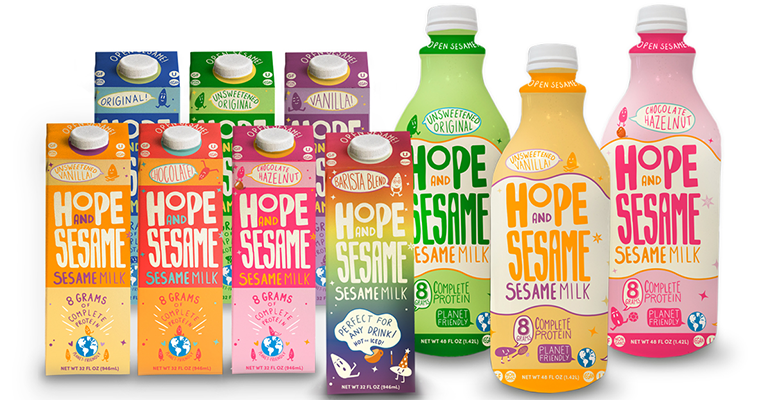
Editor’s choice: Our roundup of the most innovative dairy alternative products
19 Sep 2022
There is so much innovation in the alternative dairy space it can be hard to keep track. From sesame milk to bean-based cheese, our editors have rounded up of some products that showcase the trends in this constantly-evolving category.
Read more